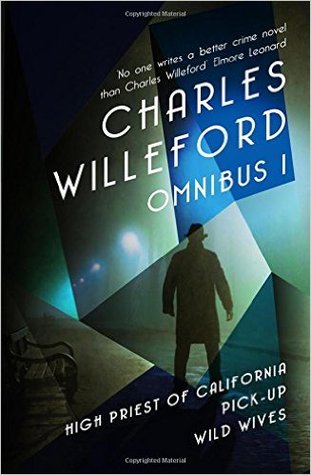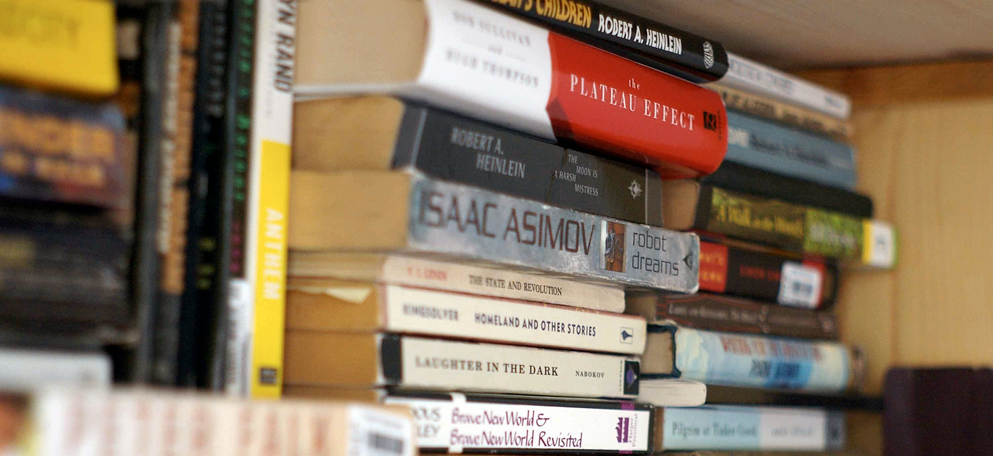
Charles Willeford was a child of the Depression era, one of thousands who drifted across the Dust Bowl of America riding the freight trains. That experience, combined with twenty years spent in and out of the armed forces, and the most colourful of lives afterwards, gave him more than enough to fuel his deeply authentic hard-boiled fiction.
The High Priest of California is his first novel, and, like Pick-Up and Wild Wives, is not pulp fiction, but almost satirises that genre. The humour is raunchy and vaguely bad-tempered, but the writing is never pretentious. The stories are not lurid; rather, they are skilfully crafted tales of men and women responding to their individual circumstances, whether purely for their own gain, or driven by sheer force of hardship.
'One of our most skilled, interesting, accomplished and productive writers' - Washington Post
Quotes and thoughts while reading:
High Priest of California
I thought it was interesting to enter the world of the 50's(maybe even the 40's, the books isn't too explicit - but it feels like it was written to be contemporary), with too much smoking and drinking - and just the general language that was used.
"We had a drink, Alyce drinking a Scotch and Soda, and me a stinger. She evidently didn't know anything else to order; I could tell by her hesitation. Anybody who knows something else will never drink Scotch anyways. It tastes like woodsmoke and wees. I began to pump Alyce(for information)..."(p 8)
I was, and still am, intrigued by all the literary references that Willeford makes for Russ(the main character). He talks about Kafka, Ulysses and James Joyce, as well as Finnegan's Wake. Maybe these were more commonplace things to talk about - but I feel like if I was reading pulp fiction written today I wouldn't see mention of things like that. It added a little more depth to Russ - and make his decisions a little more interesting to think about and consider. What motivates him? Why does he make the choices that he does? It's not for lack of education or intelligence.
I wrote a note that says "Why's he always picking fights?" - and I feel like this is another one of those elements of the story that transports me into the time period. Maybe men in that time where more full of bravado and gumption(a lot of men served in the military and knew how to fight - so maybe fights breaking out was more common. You knew how to hurt a man, without killing him). There's lots of little pieces like this that fit into my view of the 50's and it's fund to see that my views aren't unfounded - this piece of media further cements them(whether they are true or not).
Russ references the T S Eliott poem Burnt Norton <- click here for a copy of it to read for yourself.
I also found it strange that it transitioned into a stage play - that had a totally different feel. It was the same story more or less - but moved in a different way - and even had a different ending.
But don't let that distract from the fact that this book is a time traveling transportation device to bring you into a different decade. The cars, the streets, the language, all of it encapsulates you as you read. But wait, there's more!
Pick-Up
To echo the last comment - this time period reminds me of my father so much. I think it really has to do with the cars. He and all his friends when I was a kid were obsessed with cars - he'd run into them at car shows - he had a classic 50's car - and so I think hearing the names of these vehicles - and the kind of tone of the time match up really well with memories of my dad.
Mills College popped up again - what is up with that? It seems to be everywhere. And it's even more surprising that Helen studied geology. I'm sure it's always been there in the books that I've read - but I just didn't see it.
This book was dark - from details involving serious alcoholics who get themselves into binds - to suicide attempts and so forth. There's even a rape scene that is brutally described - I didn't think the 50's was allowed to say things like that - again - there's always misconceptions and projections that are put upon a time period - and this book goes far enough to dispel some of those myths and incorrect notions. The 50's were as dirty as any other time - is that the time period that people want to get back to?
"By six that evening she sat numbly in the chair by the window. I undressed her and put her to bed. She lay on her back, breathing with difficulty. Here eyes were like dark bruises, her face a mask of fragile, white tissue paper."(p 259) Gosh - that description is so rich, and just telling of what Helen looks like at this point. Poor, poor Helen.
There are moments in this book that made me stop and write "Holy shit", because the descriptions are just so gripping, and feel real. Harry strangles Helen, and him gripping her throat, and the scene as written made my heart thump, my tongue dry, and my ears pound. Really, really impressive. And sad, for these two fictional characters. They've reached why they perceive as rock bottom, and suicide seems the only way out.
So, I think the real power that lies in this book is honestly the last two lines - and how they relate to the entire novel. Never is it explicitly stated what Harry looks like - and so(because I've been loaded and have implicit bias within me - I assumed he was white.) The last two lines or so are as follows:
"...I left the shelter of the awning and walked up the hill in the rain.
Just a tall, lonely Negro.
Walking in the rain."(p 367)
So what does it say about me that I assumed Harry was a white man? And what does the story feel like on a reread knowing Harry is "just a tall, lonely Negro"? Does it change in any way? I haven't reread it yet - but I would love to talk to someone else who has read this. Because this was one of the most prescient moments in a while. To sit back and look within myself to say - "Damn - you assumed he was white... because you're white. And you assume people are like you." It also sent me down a further spiral curious if studies had been done where if a main character was not identified as a certain race - to poll a large group of people across multiple ethnic, race, gender, etc. lines - and to get their responses. The name Harry doesn't lend to him being female - but if a black man read the story would he assume Harry was black? What is the societal assumption for a un-categorized main character?
This particular one was heart-wrenching - and thought provoking - what more could you ask for?
Wild Wives
With Wild Wives we finally have the detective novel that was promised. Jacob C. Blake is a private eye - who meets a femme fatale, and gets himself into all sorts of trouble. I think the thing that struck me most in this story was the amount of smoking, and drinking(I mean the last story was about alcoholics - so the amount of drinking was in excess - but here I feel like you get a more realistic image - but then again, maybe not - it is fiction). I loved the "old" cars - and the way in which it was written - it just screams film noir.
"There was a letter from a woman in Mill Valley asking me how much I charged for handling divorce cases. I answered her letter with a postcard telling her I didn't handle divorce cases. If her husband happened to get the mail before she did, there would be an interesting argument between them, I speculated."(p 397) I mean - can't you hear it? the classic 1950's / 40's film noir narrator saying that? Doesn't it just ooze that time period - that attitude? I love it!
As it turns out - Jacob C. Blake really does have an incredibly crazy - and beautiful - femme fatale on his hands. It's the classic story - with all the elements - but that doesn't make it any less fun / interesting to read. Charles Willeford really does an amazing job at capturing and conveying just how crazy Florence is.
And even better yet - the ending was pretty good! There's nothing I can't stand worse than a bad ending(that's not true - but hyperbole is fund sometimes) - and this story had a pretty good one. You get kicked and tossed around the last few chapters- and as a reader that's fun.
In closing - I would wholeheartedly recommend Charles Willeford - what a great find in the sale bin! To transport yourself back into the pulp 1940's / 50's is an experience - and one I think all should participate in.
<< click to go back
© JKloor 2016 Books
